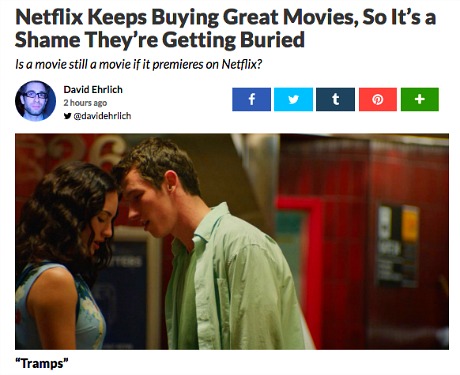Dance Camera West is an annual two-weekend Los Angeles film festival about…you’ll never guess. Okay, the transportation of dancing. It’s been a thing for 16 years, but I didn’t know that until this morning. Because I’m not exactly a dance enthusiast. I respect and admire great dancing (I’ll never forget a Twyla Tharp show I saw at the Winter Garden in the ’80s), but it doesn’t make me levitate as a rule. But I like it.
The Dance Camera West Film Festival, a selection of dance-themed shorts with a feature or two thrown in, kicks off on Thursday night (4.20) at Royce Hall, and will continue over the weekend at UCLA’s Fowler Museum ($12 admission). Free stuff will occur the following weekend at the Santa Monica Pier.
Tonia Barber, a friend of HE’s own Svetlana Cvetko, has been running the operation and programming the films for six years now. She’s paid a modest salary, works hard, consults with a board…the usual razmatazz. But she’s mainly doing it for love, or so it seems.
“The films we show don’t capture dance…we show films in which dance was made for the camera,” Barber says. “The festival has a certain history, a certain audience and it has to exist. It has to be out there, and I would feel really sad if it wasn’t.”
Weren’t the legendary dance numbers of Fred Astaire and Gene Kelly all about integrating dance, atheleticism, camera moves and production design? Sure, she says, but “the technology of that time created that product…dance films today are more fluid and free-form, more about improv, nativism.. shot hand-held, drones, GoPro…how people have come to capture the form.”
Read more











